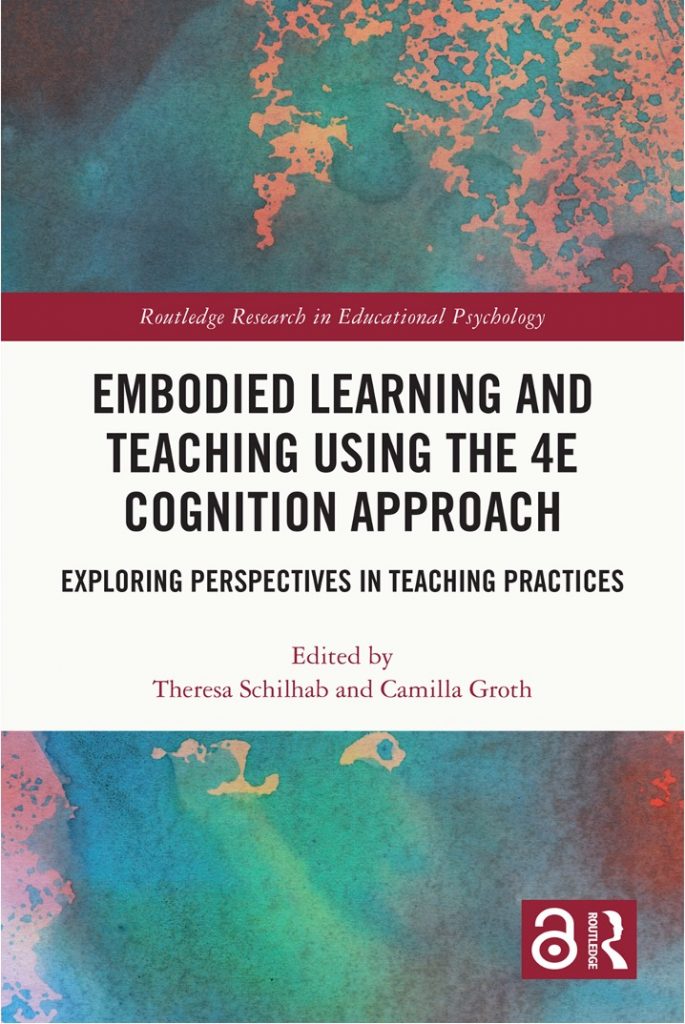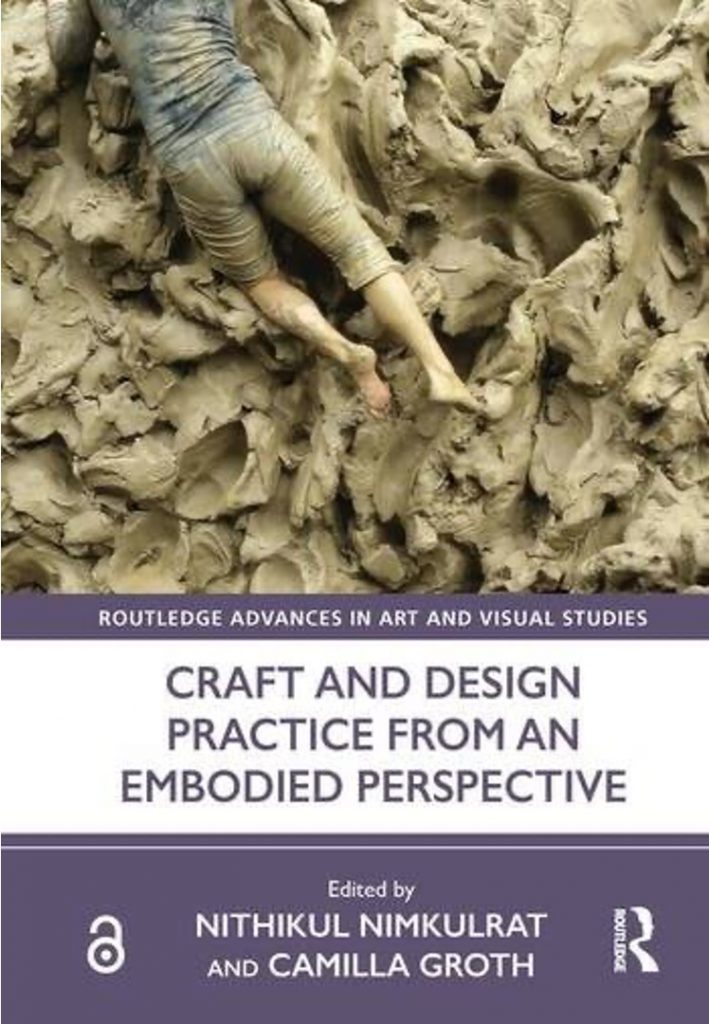Two new book launches
Researchers Marte S. Gulliksen, Lovise Søyland, Anniken Randers-Pehrson and Camilla Groth from the EMAL research group have during the past few years been working on chapters for two anthologies that both investigate embodied making and learning in different ways.
The first book; Embodied learning and teaching using the 4E approach is a result of a collaboration with the Em-Learning network that consists of educational researchers from various school subjects that all have an interest in embodied cognition and learning.

Abstract for the book:
This book operationalises the new field—EmLearning—that integrates embodiment and grounded cognition perspectives with education using the 4E approach as a guiding principle, which suggests that cognition is embodied, embedded, enacted, or extended.
Chapters highlight empirical data, providing readers with research-based insight into the theoretical foundations of embodied cognition in learning, illustrated by practical examples. Ultimately, the volume contributes a radical understanding of embodied cognition, demonstrating the importance of the field to the educational system more broadly and suggesting a fundamental change to the way learning, education, and curriculum design are viewed and considered. Based on contemporary scientific findings, the book addresses the educational area with a focus on opening the embodied approach to a wider audience that will circulate the new knowledge and support their educational practices.
Written with the purpose of contributing to a broad spectrum of academic educational fields, this book will be of use to postgraduates, researchers, and academics in the fields of higher education, educational psychology, teacher education, and teaching methodology and practice. Teachers and school politicians should also benefit from this volume more broadly.
The second book; Craft and design practice from an embodied perspective is the result of a collaboration between EMAL Member Camilla Groth and Nithikul Nimkulrat at the OCAD University in Canada. Their mutual interest in experiential knowledge has led to the collection of chapter’s that investigate craft and design practice from an embodied perspective

Abstract for the book:
This book brings together contributors from multiple disciplines, such as crafts, design, art education, cognitive philosophy, and sociology, to discuss craft and design practice from an embodied perspective.
Through theoretical overviews of embodied cognition and research-based cases that involve the researchers’ making experiences, different phenomena of human‑material interaction are presented, analysed, and discussed. The practical cases exemplify ways in which embodied notions show up in action. Contributors examine topics such as the embodied basis of craft activities and material manipulation, experiential knowledge and skill learning, reflection in and on action, and material dialogues. Several chapters specifically discuss the hybrid forms of analogue and digital crafting that increasingly takes place in the field of crafts and design, and the changed notions of material engagement that this entails.
The book will appeal to scholars of crafts, design, art education, anthropology, and sociology.